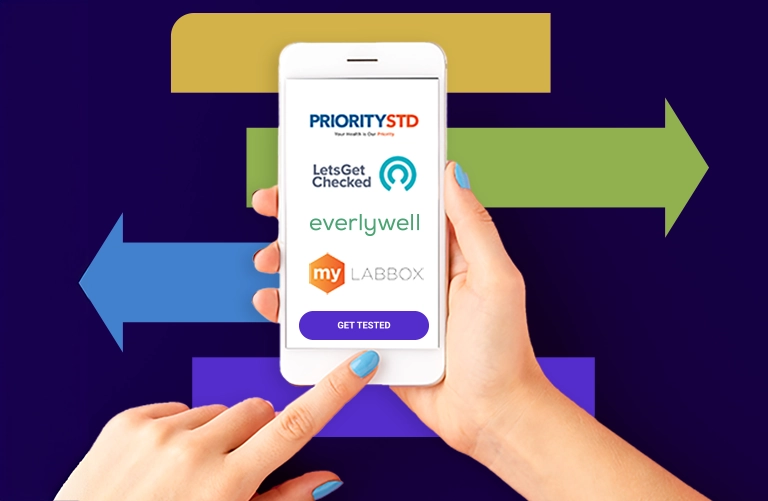Understanding Trichomoniasis: Symptoms, Testing, & Treatment
Understanding Trichomoniasis: Symptoms, Testing, & Treatment
Trichomoniasis, commonly referred to as trich, is a common, treatable STD. It can cause varying symptoms, or no symptoms at all, and can make it easier to contract other STDs. Learn more about this STD, what symptoms it may cause, how it can affect the body, testing procedures, and available treatment options.
Get Tested for Trichomoniasis
ABOUT TRICHOMONIASIS
What Is Trichomoniasis And How Does It Affect Your Body?
ABOUT TRICHOMONIASIS
What Is Trichomoniasis And How Does It Affect Your Body?
Trichomoniasis is an STD caused by the protozoan parasite, Trichomonas vaginalis. The parasite is spread through unprotected sex with an infected person, from a penis to a vagina, from a vagina to a penis, or from a vagina to a vagina.
Although roughly 70% of individuals will not have symptoms with trich infection, some may experience varying degrees, from mild irritation to severe inflammation. These symptoms can also come and go, so it can be difficult to know if you are infected with trichomoniasis without testing. Symptoms of trich include:
- In men:
- Itching or irritation inside the penis
- Buring after urinating or ejaculating
- Discharge from the penis
- In women:
- Itching, burning, redness, or soreness of the genital area
- Discomfort when urinating
- Clear, white, yellowish, or greenish vaginal discharge with a fishy smell – discharge will be thin or increased volume
A trich infection can also make sex feel unpleasant, and without treatment, it can last for months or years. While trichomoniasis itself will not cause health complications, it will actually increase your risk of getting or spreading other STDs. The genital inflammation can make it easier to acquire more dangerous diseases, such as HIV.
Trichomoniasis can also be dangerous for pregnant people as it can result in a baby being born early. These babies are also at higher risk of being born at a lower birth weight (below 5.5 pounds).
Specific Testing Information For Trichomoniasis
Testing for trichomoniasis can be done in a few different ways. Some providers can look for presence of the parasite through a simple urine test and/or performing an examination of the genitals. If necessary, a sample of vaginal fluid or swab from inside the urethra in men will be taken and viewed under a microscope. Should you test positive for trich, you may receive recommendations for other STD testing for treatment if necessary.
Results from a standard urine test are typically available within 1-3 days from the time the lab has received the sample. If you receive a conventional culture test, results can take up to 7 days. Discuss your testing options with your healthcare provider.
Trichomoniasis is curable with prescribed oral medications. The medicine is safe for pregnant individuals, so if you do have trich and are pregnant, you should get treated right away.
Treatment for trich does not mean you cannot be infected again. Reinfection actually occurs within 3 months after receiving treatment in roughly 1 in 5 people. The best way to avoid reinfection is to ensure your sexual partners receive treatment at the same time as you.
You should not have sex again until both you and your sexual partner(s) complete treatment. To be sure you are clear of infection, it is recommended to be retested again about 3 months after treatment is completed.
The only way to truly prevent trichomoniasis or other STDs is to not have vaginal, anal, or oral sex. If you are sexually active, you can lower your chances of getting trich by ensuring the following:
- You are in a long-term, mutually monogamous relationship with a person who has been tested and does not have trich
- Proper use of condoms each time you have sex
You should also be open with any new partner and discuss any potential STD risks before having sex. Also, be sure to have honest discussions with your healthcare provider to determine whether you should be tested for trich or other STDs.
- Anyone experiencing symptoms of trichomoniasis
- Any individual who has been intimate with a partner who has trichomoniasis
- All sexually active individuals
- Anyone who is pregnant